1) Help the helpers
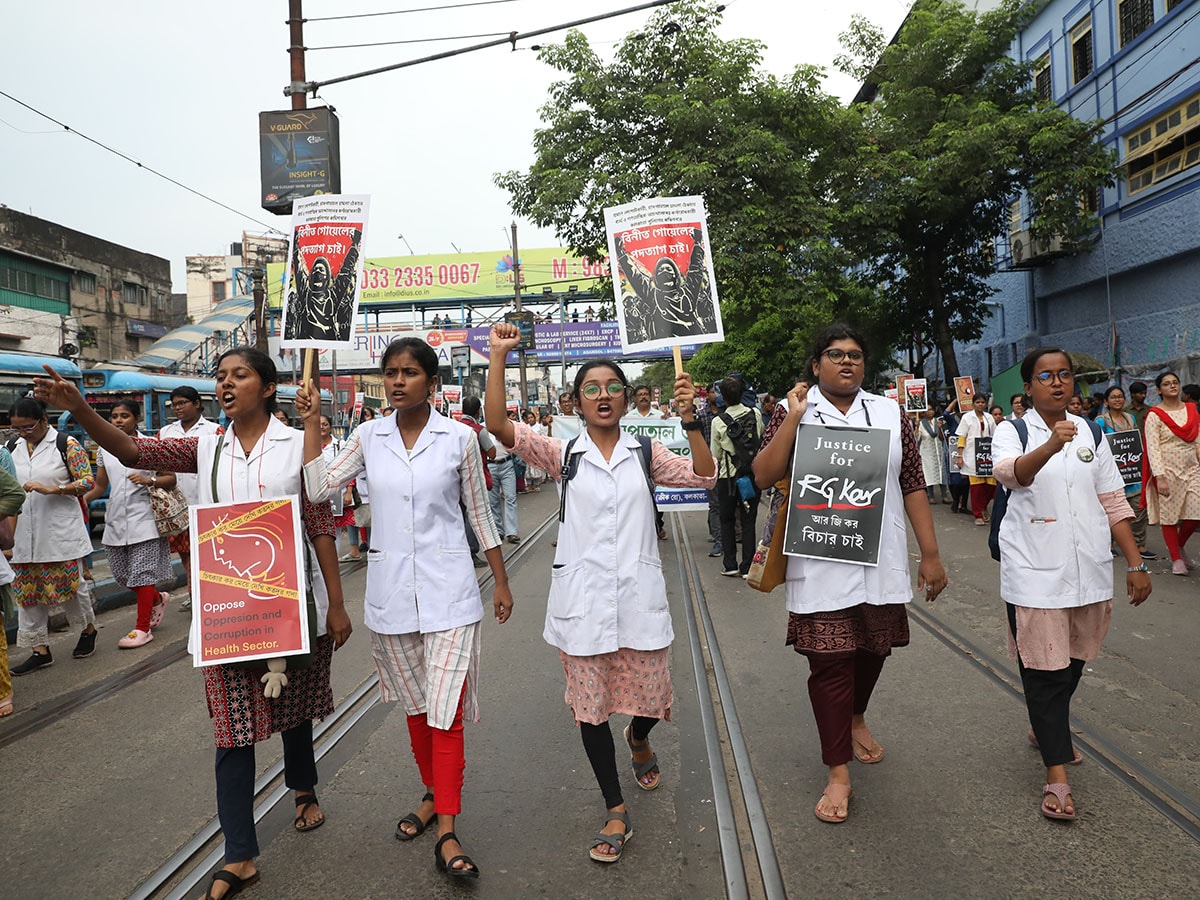 Medical students and doctors shout slogans during a protest rally against the rape and murder of a PGT woman doctor at Government-run R G Kar Medical College & Hospital in Kolkata, India, on September 7, 2024. Image: Rupak De Chowdhuri/NurPhoto via Getty Images
Medical students and doctors shout slogans during a protest rally against the rape and murder of a PGT woman doctor at Government-run R G Kar Medical College & Hospital in Kolkata, India, on September 7, 2024. Image: Rupak De Chowdhuri/NurPhoto via Getty Images
RG Kar Medical College has been in the spotlight since August 9, when the disfigured body of a resident doctor was found in a seminar hall. The incident ignited nationwide protests over the mishandling of the rape and murder case, leading to a Supreme Court hearing.
Systemic challenges, however, aren’t new for India’s medical graduates. They function in dangerous working conditions and this incident barely scratches the surface of the systemic violence that doctors encounter.
According to a 2019 study in The Indian Journal of Psychiatry, 75 percent of doctors report experiencing violence, and a 2024 National Medical Council survey found that almost 37,000 medical students have self-reported mental health issues with suicidal risk.
The numbers tell a grim story, but solutions are within reach. To prevent the current doctors’ protests from escalating further, immediate, bold reforms are needed. The question is: Will India’s leaders take action before it’s too late? Read here.
2) New milestones
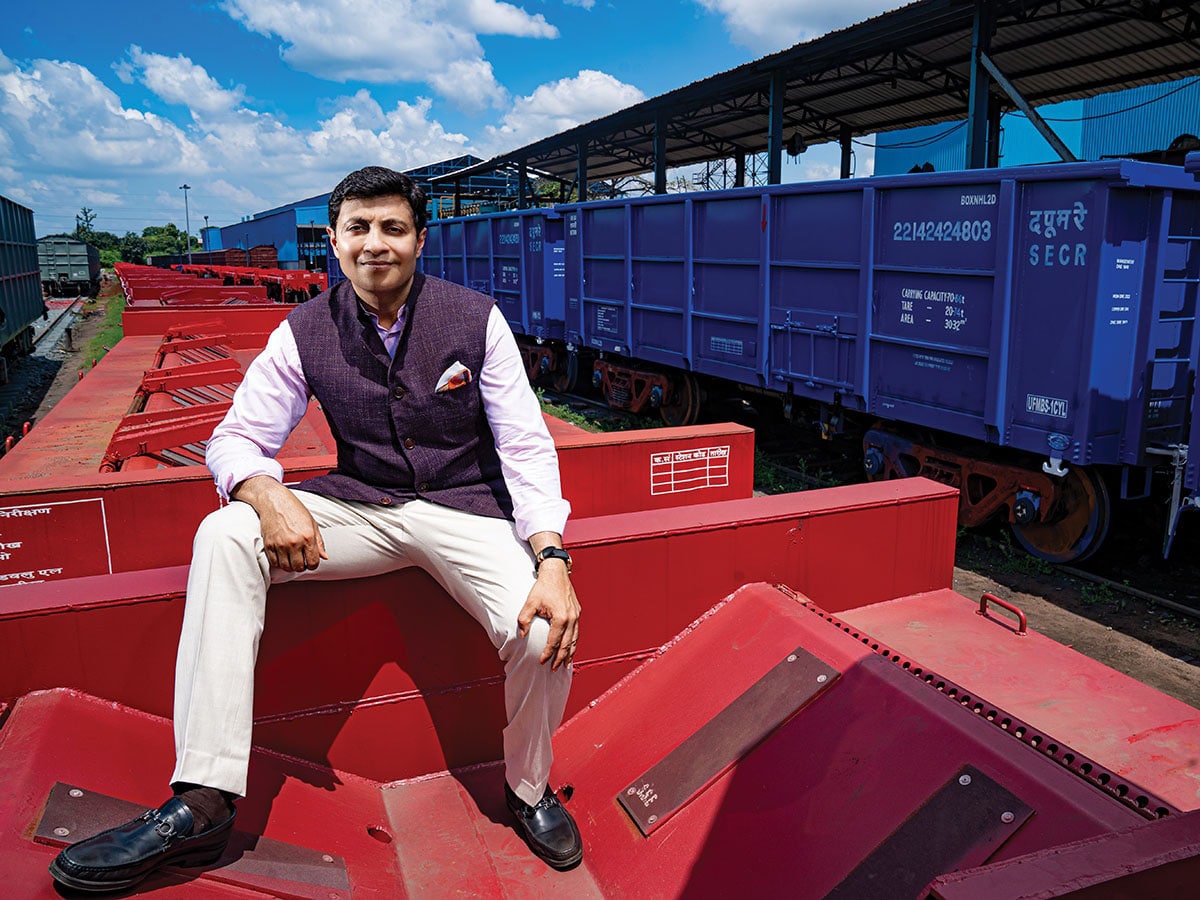 Vivek Lohia, Managing director, Jupiter Wagons Limited. Image: Mexy Xavier
Vivek Lohia, Managing director, Jupiter Wagons Limited. Image: Mexy Xavier
Vivek Lohia had come back from the US after working there for a few years, and along with his father, set up Jupiter Wagons Limited in 2006 to help build wagons, mostly for the Indian Railways. This was when only two or three other companies were dominating the sector.
Since then, the Kolkata-headquartered company has grown into one of India’s largest railway engineering behemoths with a market capitalisation of Rs24,000 crore. The company’s annual revenues stand at Rs3,641 crore as of March 2024, with profits of Rs332.8 crore. That number is likely to swell to Rs10,000 crore in the next three years, with a bottom line of Rs1,000 crore, if plans set by the Lohias fructify.
The company has also announced plans to launch its electric commercial vehicles and has tied up with North America-based GreenPower Motor Company which specialises in commercial EVs.
And, it won’t stop there. To find out what’s next, read here.
3) Powered up
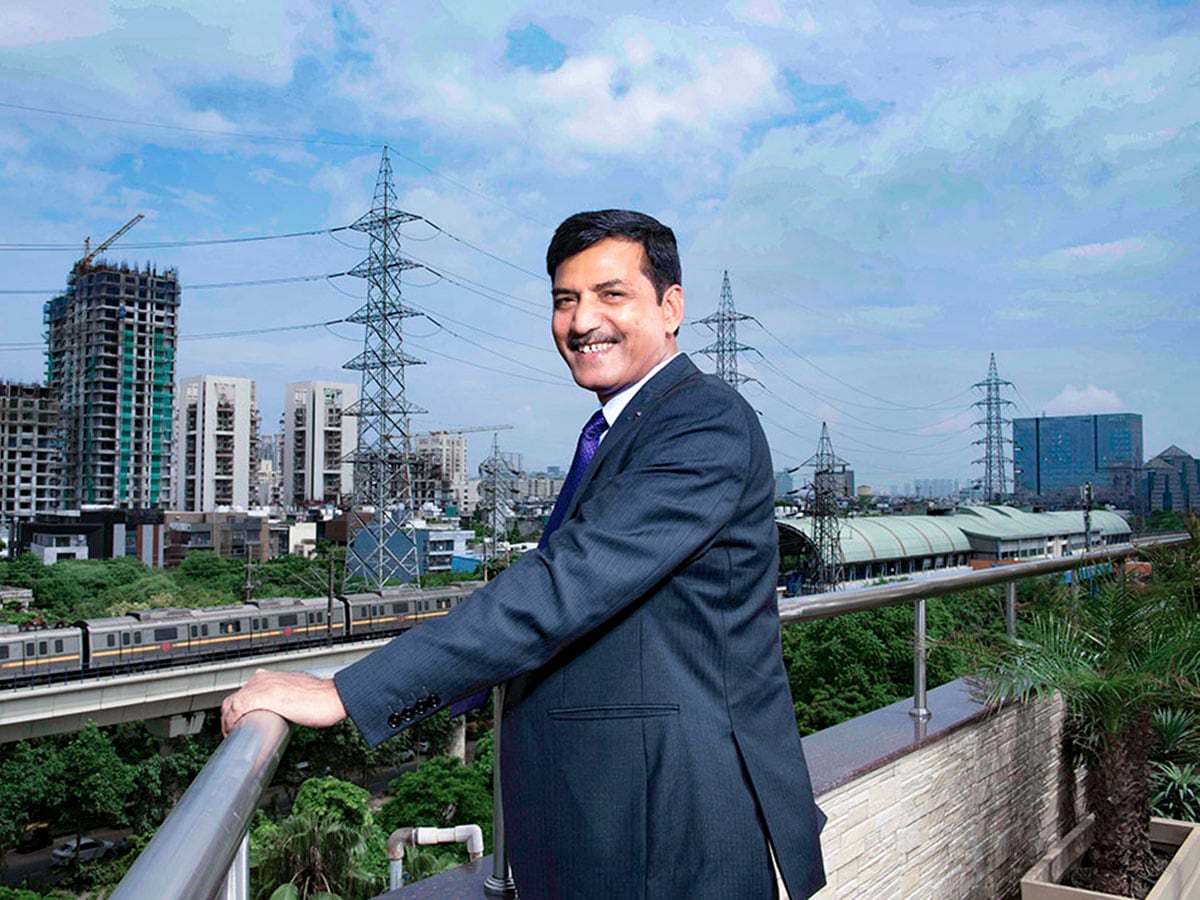 Ravindra Kumar Tyagi, chairperson and managing director, Powergrid. Image: Amit Verma
Ravindra Kumar Tyagi, chairperson and managing director, Powergrid. Image: Amit Verma
In January, Ravindra Kumar Tyagi took over as the chairperson and managing director (CMD) of the Power Grid Corporation of India (Powergrid), a public sector enterprise that is the backbone of the country’s electric grid.
In his first exclusive interaction since becoming CMD, Tyagi tells Forbes India that Powergrid will become a Rs5 lakh crore company in six to seven years. Currently, its market capitalisation stands at around Rs3 lakh crore.
The next few years will likely be an uphill climb for the Maharatna company, given the existing realities and challenges in India’s energy sector.
Here is how Powergrid is catching up with the renewable energy transition in India.
Discover
4) Show time
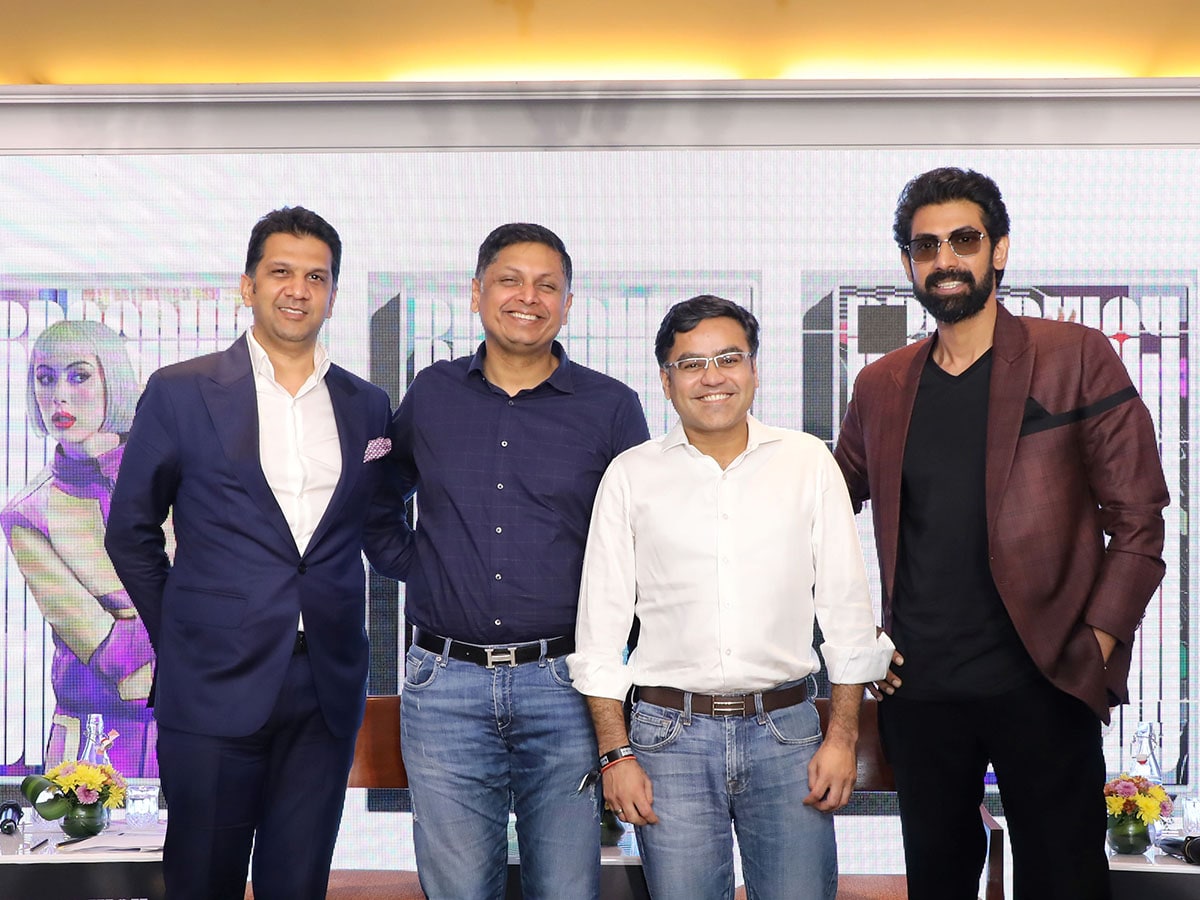 (From L to R) Anuj Kejriwal, CEO, Anarock; Apurva Salarpuria of Salarpuria Group; Vivek Biyani, founder, Broadway; Actor-Entrepreneur Rana Daggubati. Image: Courtesy Broadway
(From L to R) Anuj Kejriwal, CEO, Anarock; Apurva Salarpuria of Salarpuria Group; Vivek Biyani, founder, Broadway; Actor-Entrepreneur Rana Daggubati. Image: Courtesy Broadway
If a brand decides to launch a physical store today, the cost of putting it up, logistics, renting a space, capital expenditure, and other overheads require a huge capex. This leaves little or nothing for marketing and advertising. Broadway hopes to be the solution.
It is a platform that allows brands to acquire a space for a time period of three to 12 months, with a fee starting from Rs50,000 to Rs200,000 per month based on the brand’s category. This fee will include rent, electricity, housekeeping, logistics in terms of storing spaces, and everything else one needs in a physical retail store. A concept by Vivek Biyani, actor-entrepreneur Rana Daggubati, Apurva Salarpuria of Salarpuria Group and Anuj Kejriwal of Anarock, with industry stalwart Kishore Biyani as mentor, Broadway has three store openings scheduled in the coming months, starting with Delhi on September 13, followed by ones in Hyderabad and Mumbai.
Know more about the concept here.
5) All that’s been happening
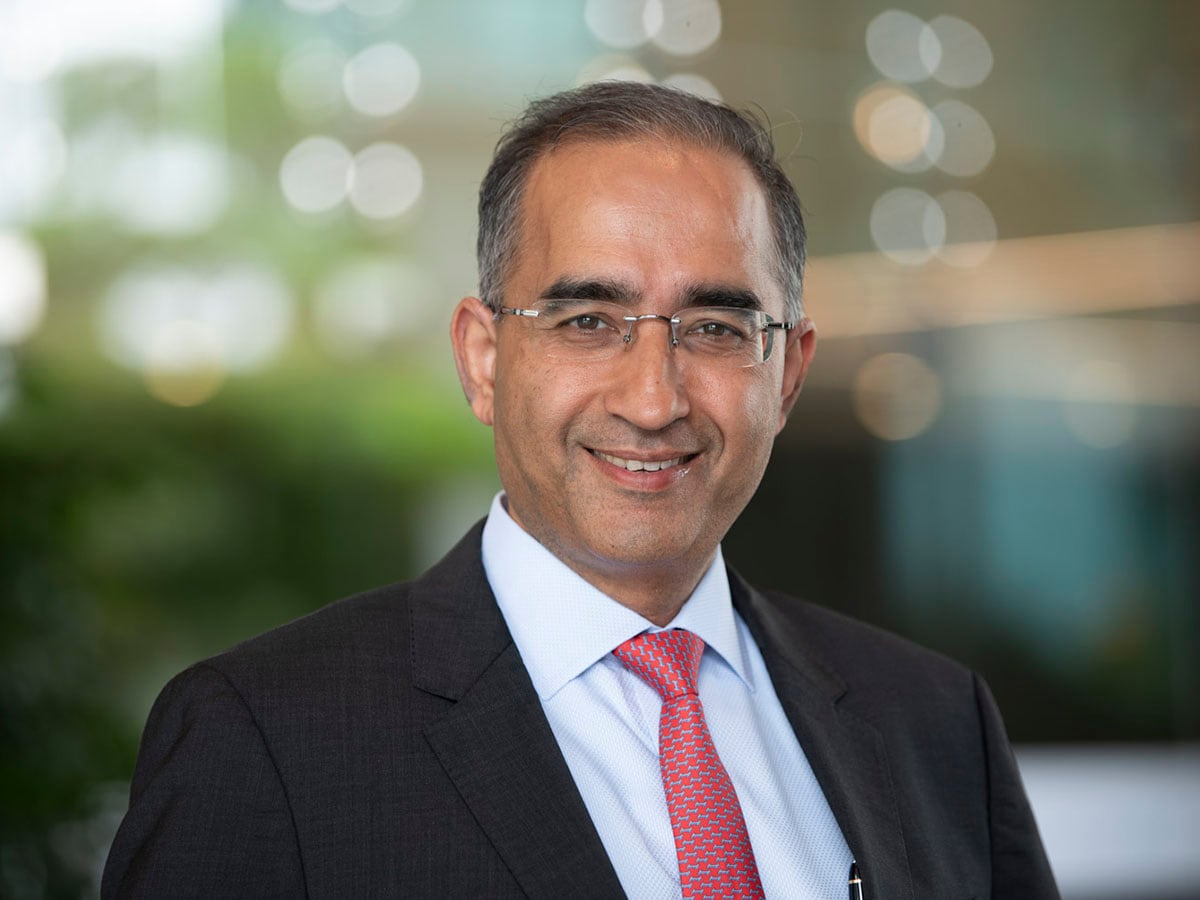 Amit Chadha, CEO and MD at Larsen & Toubro Technology Services (LTTS)
Amit Chadha, CEO and MD at Larsen & Toubro Technology Services (LTTS)
In this episode of Tech Conversations, Amit Chadha, CEO and MD at Larsen & Toubro Technology Services (LTTS), gives us a quick update on the company’s progress after a recent reorganisation along three large opportunities, each of which could become a billion-dollar operation. Chadha, who’s based in the US, also talks about the sentiment among his biggest customers on technology spending, the impact of generative AI on the engineering services industry, and how AI is indeed a source of new revenue for LTTS. This interview was recorded on August 26.
6) Challenging rides
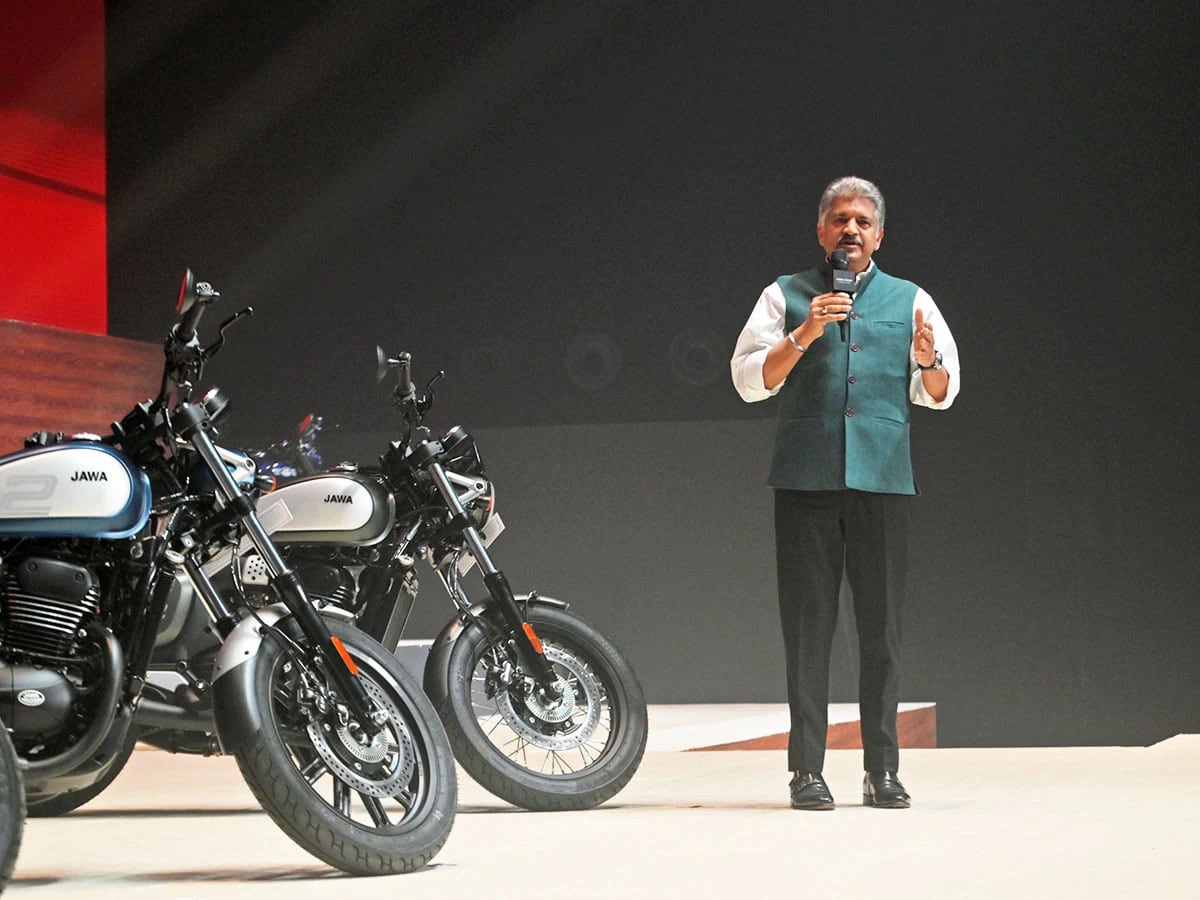 “When you ride the Jawa, you’re telling people that you refuse to be suppressed, you refuse to be oppressed,”, Anand Mahindra, chairman of Mahindra & Mahindra Ltd., said during a launch event of the Yezdi Jawa Motorcycles Jawa 42 FJ motorbike in Mumbai, India, on Tuesday, Sept. 3, 2024. Image: Indranil Aditya/Bloomberg via Getty ImagesMahindra, which consciously chose to stay away from commuter motorcycles to focus on premium motorcycles, owns 60 percent of Classic Legends that sells Jawa, Yezdi and BSA in India and the global markets. Jawa and Yezdi once held celebrity status in India, when motorcycles and cars were scarce in the country, with BSA’s 1942 BSA WA 500 cc bike featuring in the blockbuster movie Sholay. Still, the resurrection has been something of a challenge for Mahindra, and Classic Legends, six years since it began attempting it. In a year since its launch, the company sold some 50,000 bikes, averaging around 4,200 units a month. However, a few months later, Covid-19 came as a dampener. Classic Legends has a mammoth task ahead, and it is in desperate need to crack the Indian consumer. Focusing on a smaller but the premium biking audience, it has now readied a war chest of Rs1,000 crore. Can Jawa, Yezdi, and BSA finally find their way?
“When you ride the Jawa, you’re telling people that you refuse to be suppressed, you refuse to be oppressed,”, Anand Mahindra, chairman of Mahindra & Mahindra Ltd., said during a launch event of the Yezdi Jawa Motorcycles Jawa 42 FJ motorbike in Mumbai, India, on Tuesday, Sept. 3, 2024. Image: Indranil Aditya/Bloomberg via Getty ImagesMahindra, which consciously chose to stay away from commuter motorcycles to focus on premium motorcycles, owns 60 percent of Classic Legends that sells Jawa, Yezdi and BSA in India and the global markets. Jawa and Yezdi once held celebrity status in India, when motorcycles and cars were scarce in the country, with BSA’s 1942 BSA WA 500 cc bike featuring in the blockbuster movie Sholay. Still, the resurrection has been something of a challenge for Mahindra, and Classic Legends, six years since it began attempting it. In a year since its launch, the company sold some 50,000 bikes, averaging around 4,200 units a month. However, a few months later, Covid-19 came as a dampener. Classic Legends has a mammoth task ahead, and it is in desperate need to crack the Indian consumer. Focusing on a smaller but the premium biking audience, it has now readied a war chest of Rs1,000 crore. Can Jawa, Yezdi, and BSA finally find their way?
7) All the inspiration we need
 Sheetal Devi. Image by : Ramsey Cardy/Sportsfile via Getty ImagesSheetal Devi, the archer from Jammu & Kashmir, captured the world’s imagination with her ‘armless’ dexterity with the bow. Rakesh Kumar, also from Jammu & Kashmir, suffered a debilitating spinal cord injury in adulthood, which left him confined to a wheelchair. Devi, along with her teammate Kumar, won the Bronze medal at the mixed team compound open event at the Paris Paralympics 2024. Sonepat’s Sumit Antil grew up wanting to be a wrestler. But a motorbike accident at 17 changed the course of his life when he found that his left leg would be amputated. In Paris this year, Antil defended the exclusive gold medal he won in Tokyo with a Paralympic record throw of 70.59 m. India finished the Paralympics with a historic tally and here are the inspiring stories of the medallists who have conquered their sports against all odds, and our hearts–in two parts. Read the first part here and the second part here.
Sheetal Devi. Image by : Ramsey Cardy/Sportsfile via Getty ImagesSheetal Devi, the archer from Jammu & Kashmir, captured the world’s imagination with her ‘armless’ dexterity with the bow. Rakesh Kumar, also from Jammu & Kashmir, suffered a debilitating spinal cord injury in adulthood, which left him confined to a wheelchair. Devi, along with her teammate Kumar, won the Bronze medal at the mixed team compound open event at the Paris Paralympics 2024. Sonepat’s Sumit Antil grew up wanting to be a wrestler. But a motorbike accident at 17 changed the course of his life when he found that his left leg would be amputated. In Paris this year, Antil defended the exclusive gold medal he won in Tokyo with a Paralympic record throw of 70.59 m. India finished the Paralympics with a historic tally and here are the inspiring stories of the medallists who have conquered their sports against all odds, and our hearts–in two parts. Read the first part here and the second part here.
